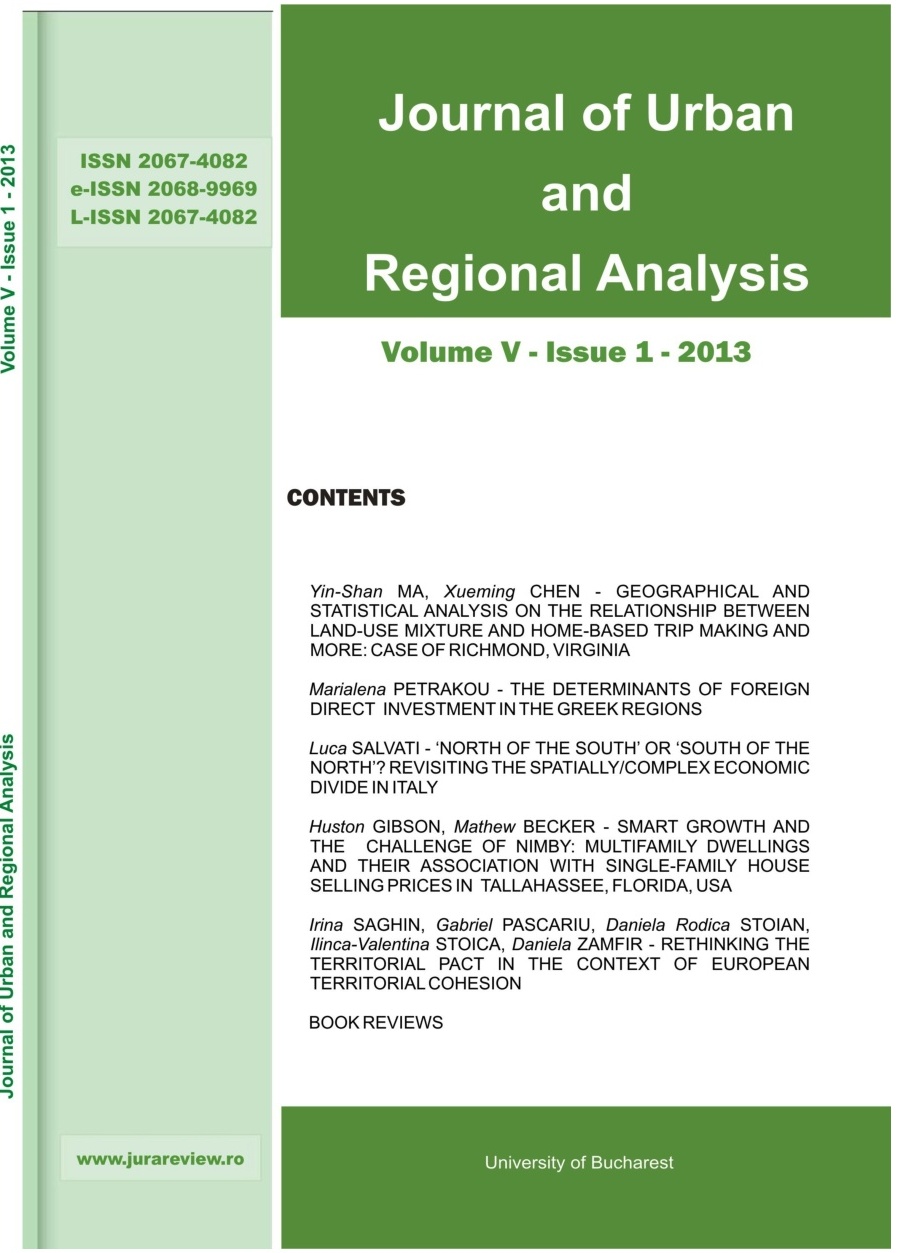SMART GROWTH AND THE CHALLENGE OF NIMBY: MULTIFAMILY DWELLINGS AND THEIR ASSOCIATION WITH SINGLE-FAMILY HOUSE SELLING PRICES IN TALLAHASSEE, FLORIDA, USA
SMART GROWTH AND THE CHALLENGE OF NIMBY: MULTIFAMILY DWELLINGS AND THEIR ASSOCIATION WITH SINGLE-FAMILY HOUSE SELLING PRICES IN TALLAHASSEE, FLORIDA, USA
Author(s): Huston Gibson, Mathew BeckerSubject(s): Demography and human biology, Rural and urban sociology, Economic development, Socio-Economic Research
Published by: Editura Universitară
Keywords: housing; land use; smart growth; neighborhood perception;
Summary/Abstract: Citizens protest development when they consider it undesirable. One type of development commonly perceived as undesirable by single-family home owners is proximate multifamily housing, often considered a cause of property devaluation. This study assesses multifamily housing, by typology, and its monetary association with proximate single-family housing prices. The research design is a cross-sectional study using multivariate regression. The unit of analysis is the detached single-family dwelling. The study population is a sample taken from all arms-length owner-occupied, primary residence, detached single-family property transactions recorded in Tallahassee-Leon County, Florida, USA, during 2008. The key findings show no statistically significant negative associations between multifamily housing and single-family property selling prices in the sample; in fact, the two were positively correlated. These findings address single-family homeowner concerns about proximate multifamily housing and should bolster the political feasibility of Smart Growth policy, which recommends denser urban infill.
Journal: Journal of Urban and Regional Analysis
- Issue Year: 5/2013
- Issue No: 1
- Page Range: 77-87
- Page Count: 11
- Language: English

